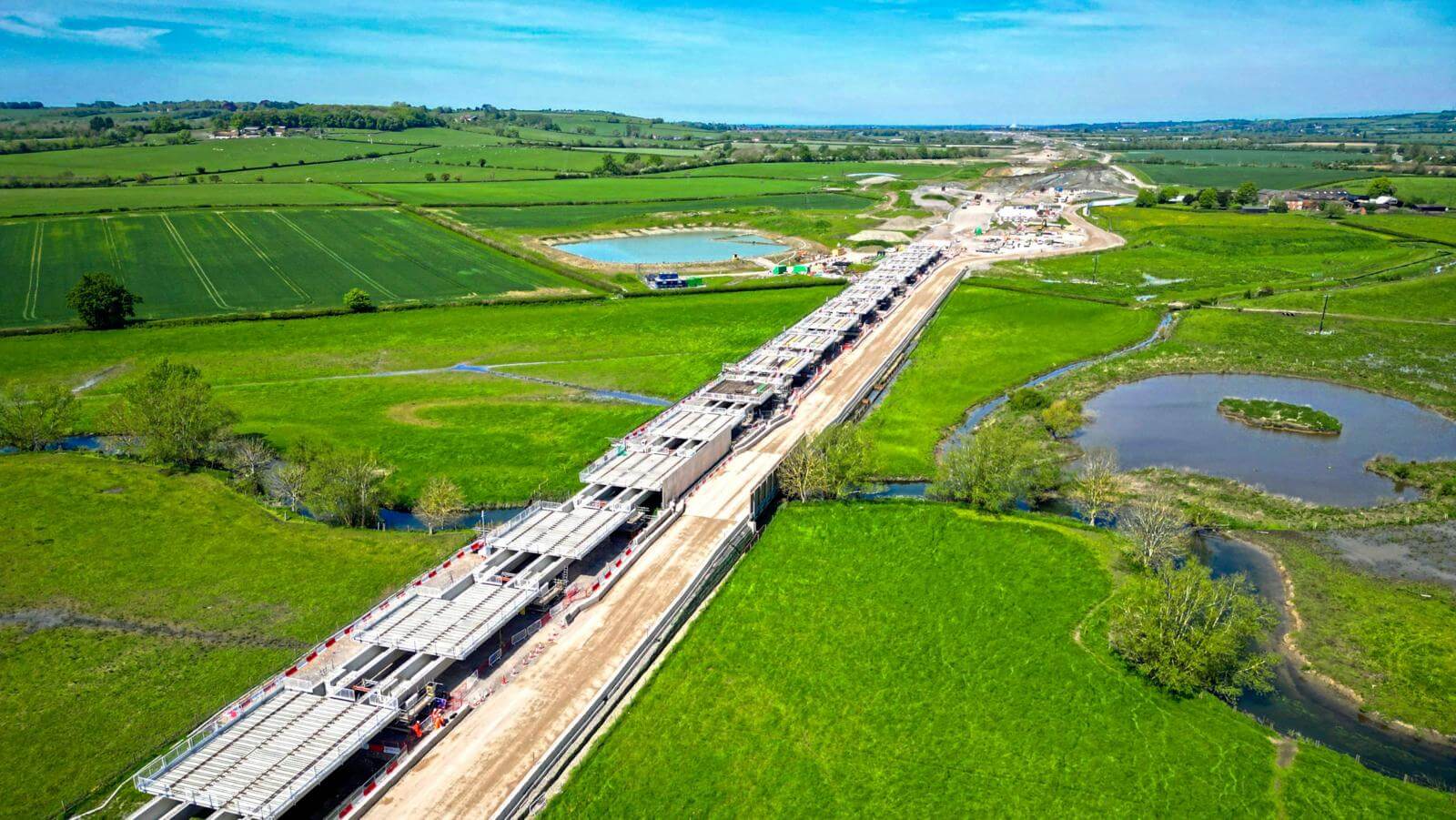
The economic prospects of Birmingham and Manchester are being seriously damaged because of the Government’s failure to come up with any plans to improve the West Coast Main Line, to replace the cancelled northern leg of HS2.

The economic prospects of Birmingham and Manchester are being seriously damaged because of the Government’s failure to come up with any plans to improve the West Coast Main Line, to replace the cancelled northern leg of HS2.
That’s the claim in a report by the independent National Infrastructure Commission, which roundly criticises the Government’s lack of joined-up policy.
The NIC is a publicly funded body that recommends major policy changes needed to improve the nation’s competitiveness and quality of life by 2050.
It is led by Sir John Armitt, one of the country’s most senior civil engineers who was chief executive of Railtrack and Network Rail from 2001-07.
He warns that the lack of investment in the WCML north of Handsacre, and a lack of ideas about better connections to Yorkshire, will dilute the effort being put into other routes such as the Transpennine Route Upgrade and Midlands Rail Hub.
The report says: “A ‘do nothing’ scenario’ [for the WCML] is not sustainable. It is the busiest rail freight corridor in the UK - and one of the busiest in Europe - with over 40% of the UK’s traffic using it.
“It is already running at a higher intensity of operation than major fast lines in other European countries, impacting on reliability.
Bottlenecks limit capacity growth, including at Colwich Junction, Crewe and the southern approach to Manchester.”
The NIC warns that rail investment is being spread too thinly across too many projects, and calls for a proper long-term pipeline of projects, instead of the present stop-start policies dictated by the lumpy flow of money from HM Treasury.
This will be music to the ears of contractors, manufacturers and suppliers, who have long argued that they cannot safeguard jobs if they have to live from year to year. It would also drive down costs.
The report cites the indecision over whether HS2 will reach London Euston as an example of poor strategic thinking, stating: “The necessary funding must now be secured to avoid incurring greater costs from stopping and restarting work. Permanently terminating HS2 services at Old Oak Common has not been planned for and would provide poorer connectivity to many onward destinations.”
The report demands a refreshed and regularly updated Rail Network Enhancements Pipeline - first published in 2019, but not revised since.
It states: “It could be expanded to then provide clarity about the delivery timescales, each project’s stage of development and the associated cost range, with already well-developed schemes being delivered first to realise benefits sooner. Having long-term certainty enables local authorities to complement new transport infrastructure with investment to support regeneration and better local transport, providing a greater return.”
The NIC supports the elected city mayors’ pleas for more money over the next two years, to have greater control over how it is spent, to be able to plough back the surpluses, and not be frightened to adopt good ideas from other countries.
It calls for a total of £22 billion to be made available between 2028-45, some of it to smaller cities as well as Birmingham, Bristol, Leeds and Manchester.
It also wants to see the present short-term handouts to Transport for London replaced with five-year deals, to allow better maintenance and for investment in new schemes to be better organised.
And the report calls on government to agree to a pipeline of schemes for other major cities, as well as finding money for Bristol, Birmingham, Leeds and Manchester.
Separately, the NIC also has comments on the state of the UK road network, which it says would cost £16.3bn to repair and take a decade just to catch up.
There are also concerns over the water industry, pollution, and meeting net zero targets.
Login to continue reading
Or register with RAIL to keep up-to-date with the latest news, insight and opinion.


















Login to comment
Comments
No comments have been made yet.